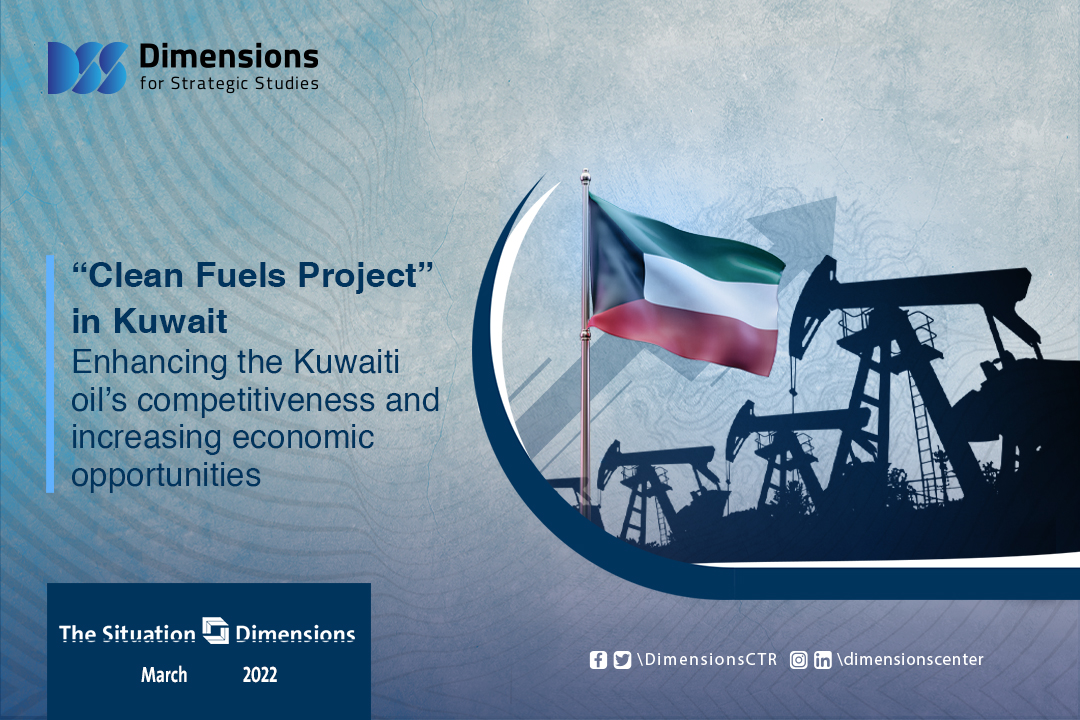
Clean Fuels Project in Kuwait: Enhancing the Kuwaiti oil’s competitiveness and increasing economic opportunities
2022-03-292145 view
On March 22, 2022, the Kuwait's Clean Fuels Project (CFP) was inaugurated, with an estimated cost of $15.5 billion; 30% of which was paid by the Kuwait National Petroleum Company's (KNPC), and the rest required for funding the project was borrowed from foreign and local banks. The project included the construction of 39 production units in addition to the revamping of 7 others, with the closure of 7 old ones in each of the Mina Al-Ahmadi and Mina Abdullah refineries, bringing the refining capacity of the two refineries to 800,000 barrels a day.
The project was first announced in 2008, started working in 2014, and completed by 2022. This long period reflects the enormity of the project that Kuwait put high hopes for years.
The project's primary goals as set by Kuwait are:
A) The project would enable Kuwait to produce ultra-low sulphur products that meet Euro 4 and 5 standards and specifications, so that Kuwaiti oil would become a source with low carbon emissions, allowing Kuwait to open new opportunities in the markets of Europe and the United States of America. The announcement of the project at a time when Europe is working on finding alternatives to Russian oil carries a particular importance.
B) Kuwait currently produces about 2.8 million barrels a day, and it plans to raise production to 3.5 million by 2025, and more than 4 million in 2030. The CFP comes as a step that reinforces this strategy. This parallels with constructing Al-Zour refinery, which has a production capacity of 600,000 barrels a day of ultra-low sulphur products.
C) Enhancing the competitiveness of Kuwaiti oil products by developing the infrastructure of the country. Kuwait had already shut down the Shuaiba refinery completely in 2017, because it is very old and unfit to keep up with modern environmental requirements.
Kuwait sees the CFP as a major alternative to replace this refinery, whose most products were destined for export. The CFP will also enable Kuwait to ensure the competitiveness of oil products with low carbon emissions in light of the increased demand for natural gas products - which are more environmentally friendly - in the field of automobiles, electricity generation and other fields that compete with oil and cause a decline in demand for it in the future.
D) To secure more resources for the Kuwaiti economy by strengthening the parts of the value chain and developing oil and petrochemical products at prices higher than the price of crude oil by benefiting from the added value of the products extracted from this project.





